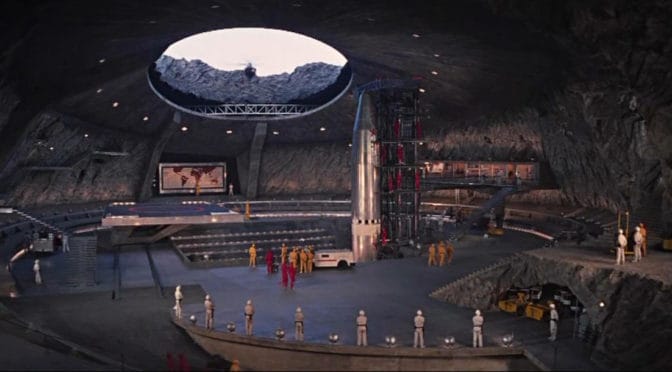The Spectre of the Ultimate Green Building
by Dr. Mark David Major, AICP, CNU-A, The Outlaw Urbanist Contributor
Imagine the ultimate sustainable green building… housing hundreds, perhaps thousands of people, drawing on geothermal power as an almost inexhaustible source of energy, and constructed to use the Earth itself to provide a natural means of cooling. This building is the very ideal of “Gizmo Green”, as defined by Steve Mouzon, since it draws upon cutting edge technological advances to provide ecological solutions. This magnificent building of our imagination even has its own light rail transit system. However, it also has a distinctly anti-urban quality about it. 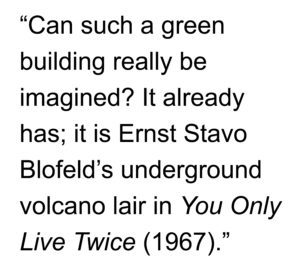 It can only be found in exurban locations, i.e. near to an urban location but not too close. Somehow, it reconciles an inherently contradictory nature into its very function. In short, this magnificent green building is all things to all people.
It can only be found in exurban locations, i.e. near to an urban location but not too close. Somehow, it reconciles an inherently contradictory nature into its very function. In short, this magnificent green building is all things to all people.
Can such a green building really be imagined? It already has; it is Ernst Stavo Blofeld’s underground volcano lair in You Only Live Twice (1967).
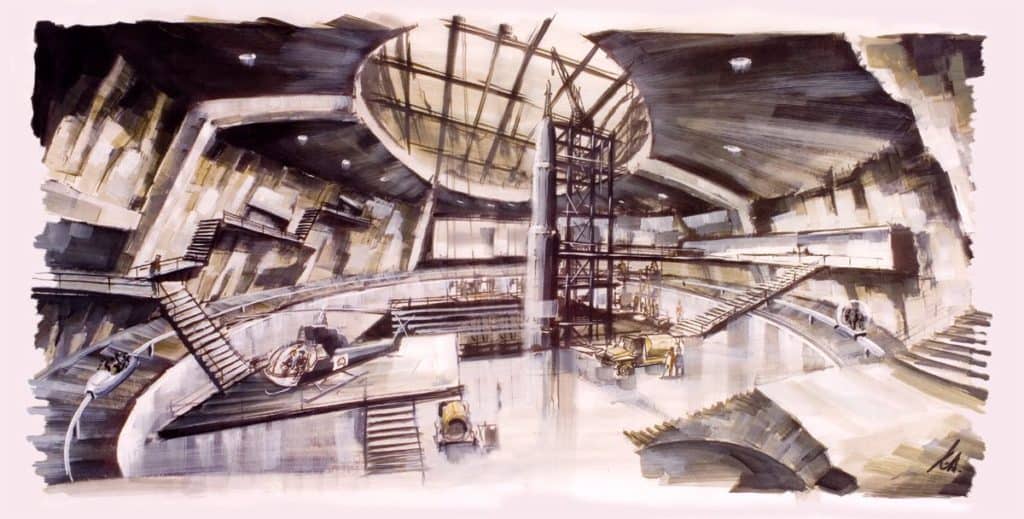
Blofeld’s lair was built in a dormant volcano so presumably draws on geothermal power for energy. It was also built underground so the building uses the Earth itself to provide natural cooling for its interior. In the film, we see hundreds of Blofeld’s minions in the lair but presumably its capacity is much larger than portrayed… or the film’s budget would allow in terms of extras. The building even has its own small-scale light rail system as well as a helipad and space launch pad! The design also appears, in part, to draw upon Jeremy Bentham’s Panopticon in terms of visual surveillance. This is likely necessary since paranoia is a fundamental aspect of Blofeld’s autocratic power in the Bond films. The design of Blofeld’s underground volcano lair was Michael Myers’ satirical inspiration for Dr. Evil’s ‘secret’ volcano lair in Austin Powers: The Spy Who Shagged Me (1999). It is fair to conclude the specifications for Dr. Evil’s lair were much the same as Blofeld’s in You Only Live Twice.
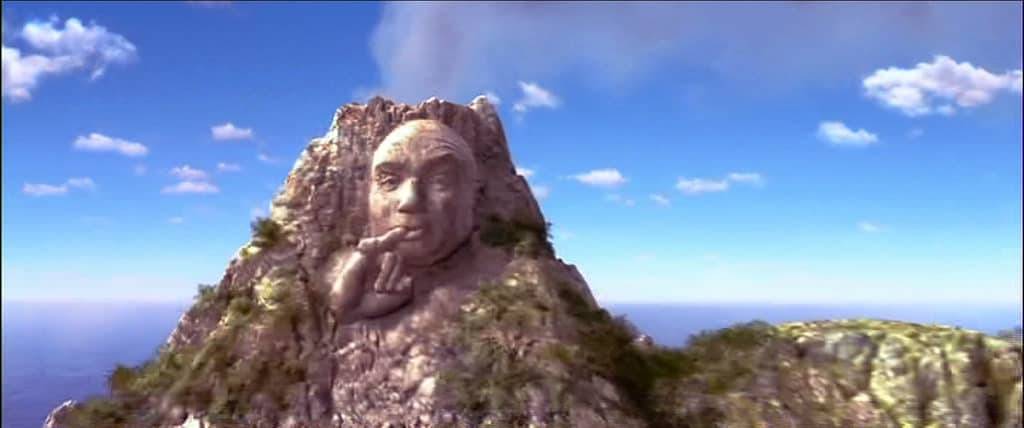
Blofeld and Dr. Evil are not the only ‘Bond’ villains to dabble in radical environmentalism. Karl Stromberg in The Spy Who Loved Me (1977) attempts to manipulate the United States and Soviet Union into launching global nuclear war while he is safely secluded in his underwater lair, Atlantis, with a chosen few to rebuild human civilization after the holocaust. Stromberg is a marine scientist who implicitly – and paradoxically – appears to have a radical environmentalist agenda. We say ‘paradoxically’ because his plan involves plunging the Earth into Nuclear Winter. His underwater lair, Atlantis, off the coast of Sardinia appears to draw on many of the same design specifications for Blofled’s lair with some modifications, i.e. drawing upon underwater thermal vents for energy, using the Mediterranean Sea for natural cooling of the structure, and so on. 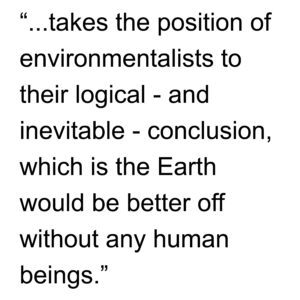 In the follow-up film, Moonraker (1979), the villain Hugo Drax explicitly engages in large-scale eco-terrorism by hatching a scheme to release a viral toxin on the Earth, which will destroy all human life but leave unharmed all other plant and animal life. Drax takes the position of environmentalists to their logical – and inevitable – conclusion, which is the Earth would be better off without any human beings. Drax attempts to implement his dastardly plan while safely secluded in his moon base lair (also Michael Myers’ satirical inspiration for Dr. Evil’s moon base lair in Austin Powers: The Spy Who Shagged Me). Finally, the Bond villain in The Man with the Golden Gun (1974), Francisco Scaramanga, uses solar power for energy at his small-scale lair (in comparison to the Blofeld, Stromberg, and Drax hideouts) on an island in the South China Sea.
In the follow-up film, Moonraker (1979), the villain Hugo Drax explicitly engages in large-scale eco-terrorism by hatching a scheme to release a viral toxin on the Earth, which will destroy all human life but leave unharmed all other plant and animal life. Drax takes the position of environmentalists to their logical – and inevitable – conclusion, which is the Earth would be better off without any human beings. Drax attempts to implement his dastardly plan while safely secluded in his moon base lair (also Michael Myers’ satirical inspiration for Dr. Evil’s moon base lair in Austin Powers: The Spy Who Shagged Me). Finally, the Bond villain in The Man with the Golden Gun (1974), Francisco Scaramanga, uses solar power for energy at his small-scale lair (in comparison to the Blofeld, Stromberg, and Drax hideouts) on an island in the South China Sea.
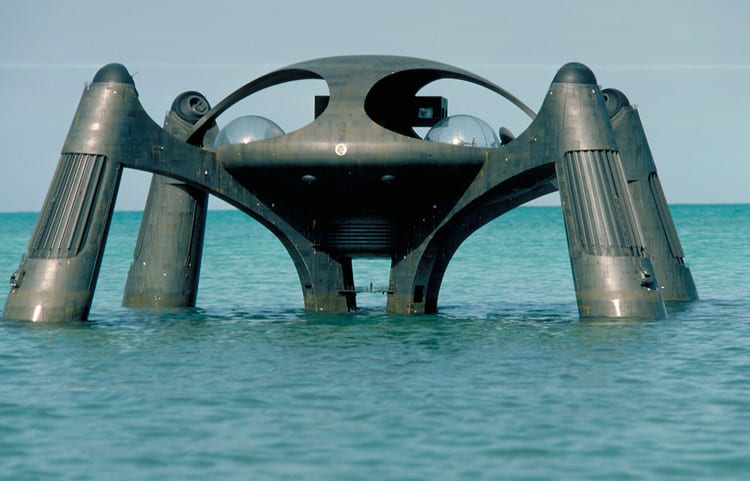
Indeed, a strong radical environmentalism strain appears to be common to many of the most-noteworthy ‘Bond’ villains, more so than one might expect at first glance. Putting aside the issues of international nuclear terrorism and blackmail, counter-intelligence, terrorism, revenge, and extortion (the “Special Executive for…”, i.e. S.P.E.C.T.R.E.), it is a legitimate question to ask whether ‘Bond’ villains represent some sort of ideal model for environmental protectionism in the world today. Is this the future of an Environmental Protection Agency and other government/non-governmental entities gone mad with power and their own narrow agenda? Are Ernst Stavo Blofeld and Dr. Evil the future faces of radical environmentalism?
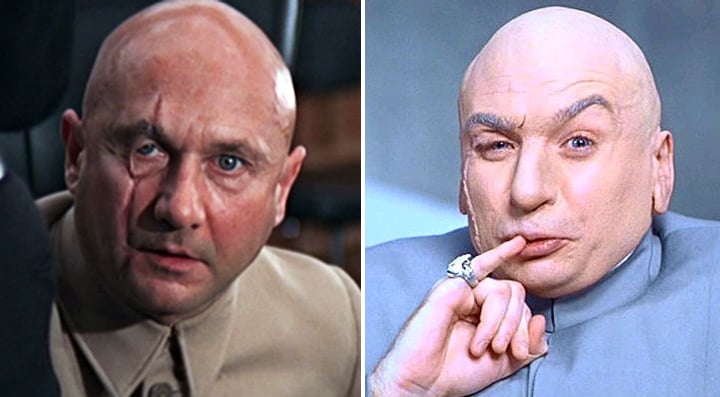
Of course, in the end, James Bond and Austin Powers always defeat the villain. In contrast to the radical environmentalist strain of these villains, Bond and Powers are the ultimate urbane individualists. Powers lives in a bachelor pad (depending on the film and time period, above Piccadilly Circus or on the South Bank in central London). Bond apparently lives in a central London row house, presumably in the Bloomsbury or Chelsea neighborhood judging from an early scene in Live and Let Die (1973). Perhaps Bond even lives next door to Patrick McGoohan’s “Number Six.” Is there a Spy Row a couple of blocks over from Saville Row in London? In any case, in the end, the traditional urbanist always defeats the radical environmentalist to save the day and the world… and get the girl.
Updated: December 11, 2012

